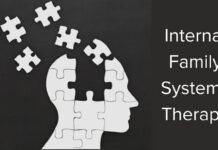Last Updated on March 12, 2024 by admin
When it comes to the world of healthcare, data is king. The more data healthcare providers have about their patients, the better they can care for them. However, managing all of this data can be a daunting task.
We all know that the world of healthcare is changing. With the rise of technology, we’re seeing more and more ways to collect and manage data. This transition and integration of new tech mean that the healthcare industry will soon be heavily reliant on data to accomplish everyday tasks. In order to keep up with the competition, healthcare providers need to find ways to streamline their data management processes. By doing so, they can provide better service for patients, stakeholders, and everyone involved.
This blog will discuss the growing importance of healthcare data management and some of the challenges involved in the process.
Table of Contents
Healthcare Data Management: An Overview
Health Data Management (HDM), also known as Health Information Management, is the systematic organization of health data in digital form. This can be anything from Electronic Medical Records of patients’ visits to Digital Repositories where handwritten notes are scanned and stored for tracking and record-keeping.
Medical data is an essential aspect of healthcare informatics. It’s not just valuable because it keeps track of a patient’s health and progress but because it also enables the analysis needed to improve treatment outcomes while protecting privacy and security in this increasingly digital world we live in today.
By integrating and analyzing data, healthcare providers can provide a more efficient service for their patients. In this way, they can improve the outcomes in terms of quality treatment and privacy.
According to a survey conducted by Deloitte:
- Most healthcare organizations are struggling with the management of medical records. They have trouble collecting EMR abstracts, claims data, and other information about patients’ enrollment in a program.
- Only renowned healthcare organizations have been able to afford and sustainably manage electronic medical record systems that can keep track of everything from patient records to lab tests and prescriptions.
- Only a small portion of healthcare organizations are utilizing non-medical data sources that can be used to augment the formal medical system, which includes patient lifestyle information and remote monitoring devices.
Benefits of Healthcare Data Management
A data management platform can have significant benefits for healthcare organizations and patients—in improving treatment methods, directly affecting the overall quality of life. This data is extracted from the patient’s health history, lifestyle habits, and other sources of information like medical bands and apps that may track fitness and daily activity.
These sources are then used to create a comprehensive view of patients’ lifestyles and combined with predictive modeling to suggest care plans, schedule appointments, and implement prevention strategies. Collectively, data management ensures that the health of a population can be better predicted and proactive measures are taken to counter rising issues through data-driven decision-making.
Health data management can also help healthcare organizations better understand the care they provide by analyzing medical practices. This includes analyzing success rates, time invested in different treatments, and decisions that practitioners make for their patients. Additionally, this may involve setting up specialized healthcare professionals in different settings and capacities to achieve the organization’s strategy or mission statement.
Challenges to Consider
It can be hard to keep up with the latest trends in healthcare. With new advancements and tech being rolled out regularly, it’s difficult for medical professionals and organizations alike to implement all this information into systems that may be outdated and unable to fully integrate with innovative equipment or software.
The medical industry is plagued with fragmented data. This can come in many formats, including but not limited to: structured spreadsheets or databases; images such as video files and scanned paper documents; digital documents like PDFs that different parties often duplicate within healthcare settings (such as providers who store their records).
Medical data changes constantly, and patients’ names, professions, locations, or conditions can often change. As a result, patients could undergo many types of treatment over their years administered by different physicians. This leads to fragmented and scattered information. There’s in pour of data from everywhere and no singular channel to manage and update it for better tracking, which means practitioners may miss out on details crucial to a treatment plan.
While new technologies are working to assimilate information in one place, there’s still a long way to go before we see a single stream of incoming data, no matter the source.
Final Thoughts
Healthcare data management is a challenge that will only grow as the population continues to age. With this in mind, it’s essential for healthcare organizations of all sizes to take notice and prepare now by investing in data management solutions before they are left scrambling later.
Read also: Here’s How the COVID-19 Pandemic Has Impacted Healthcare Across the Country






















